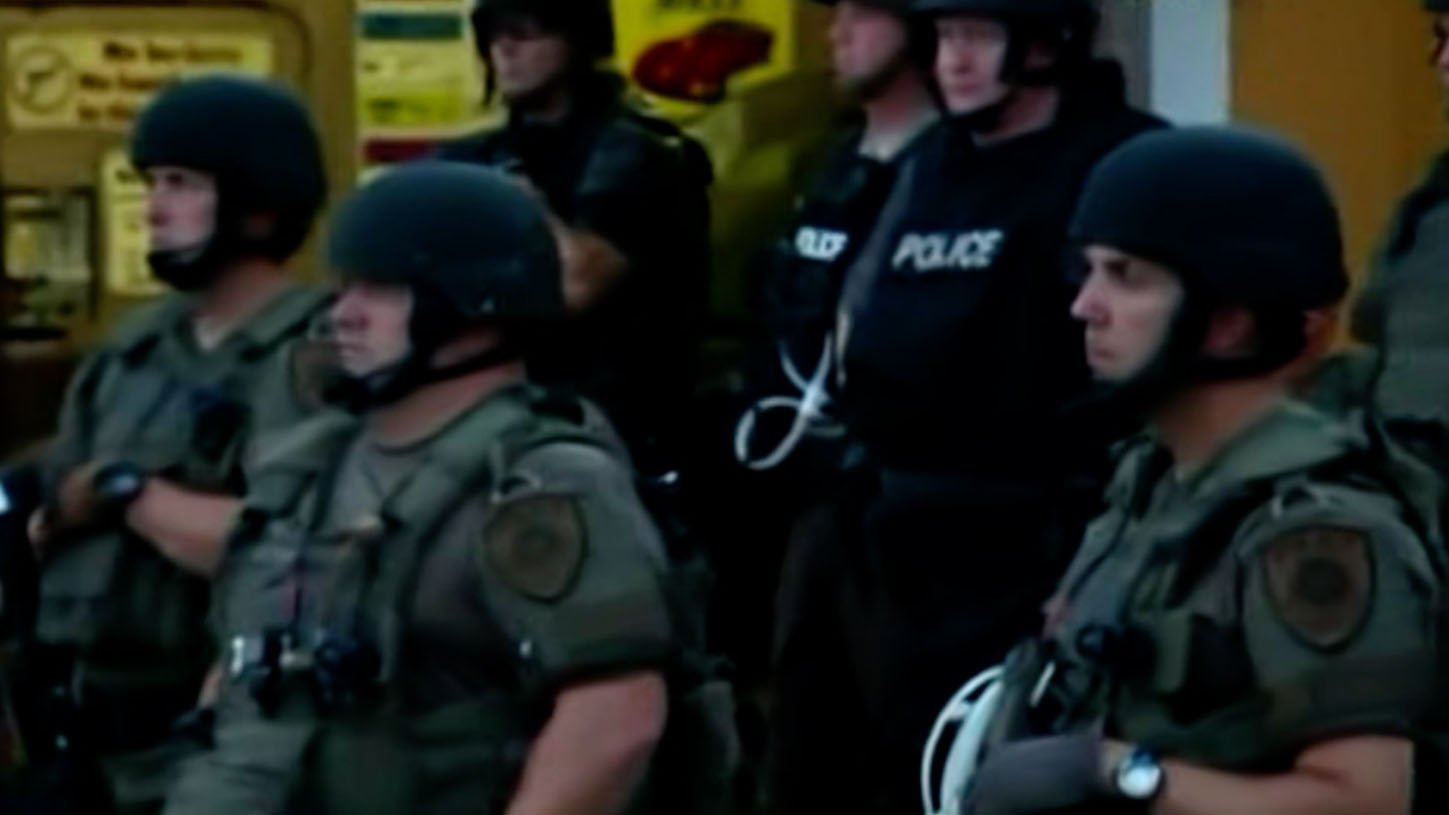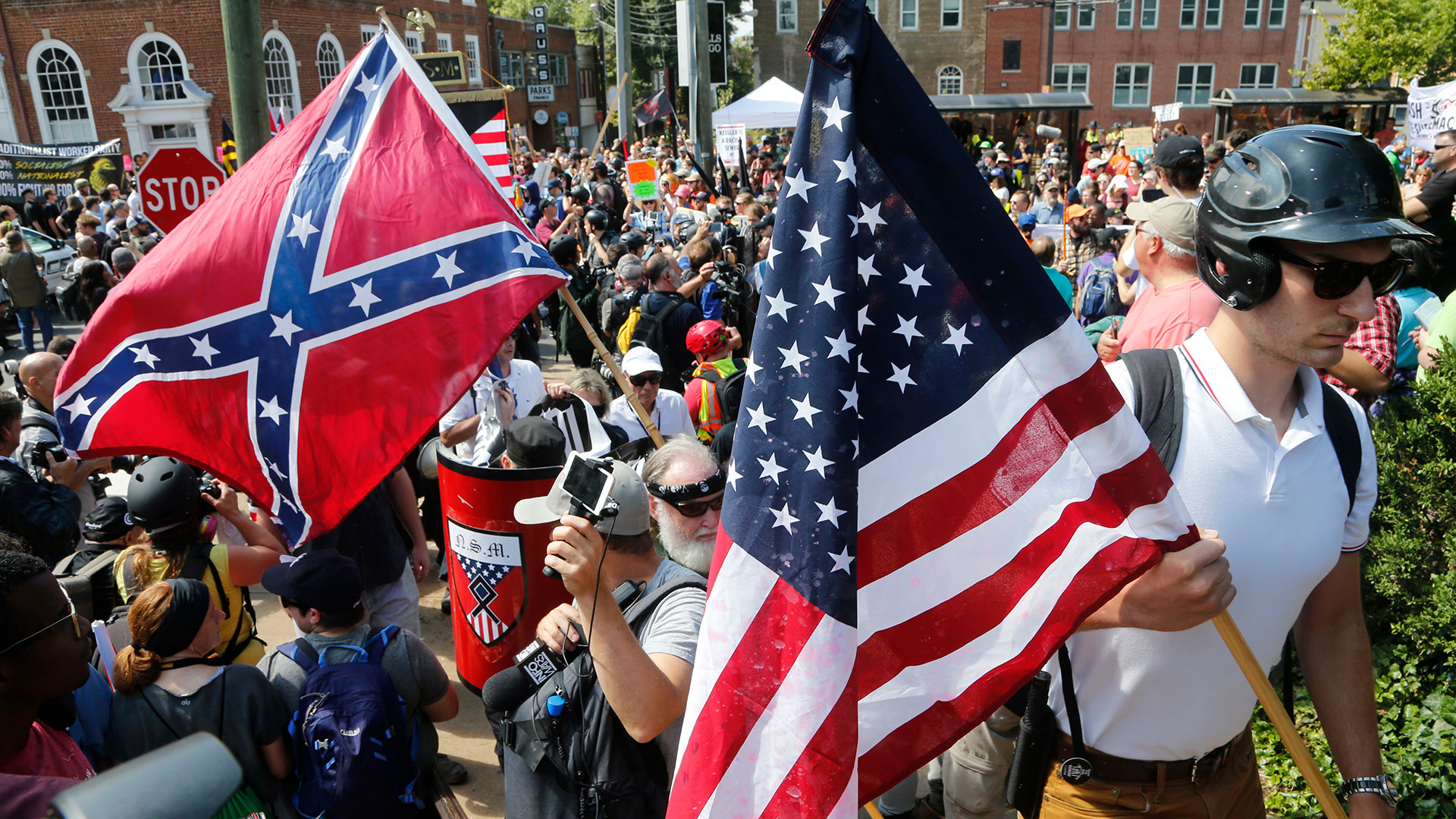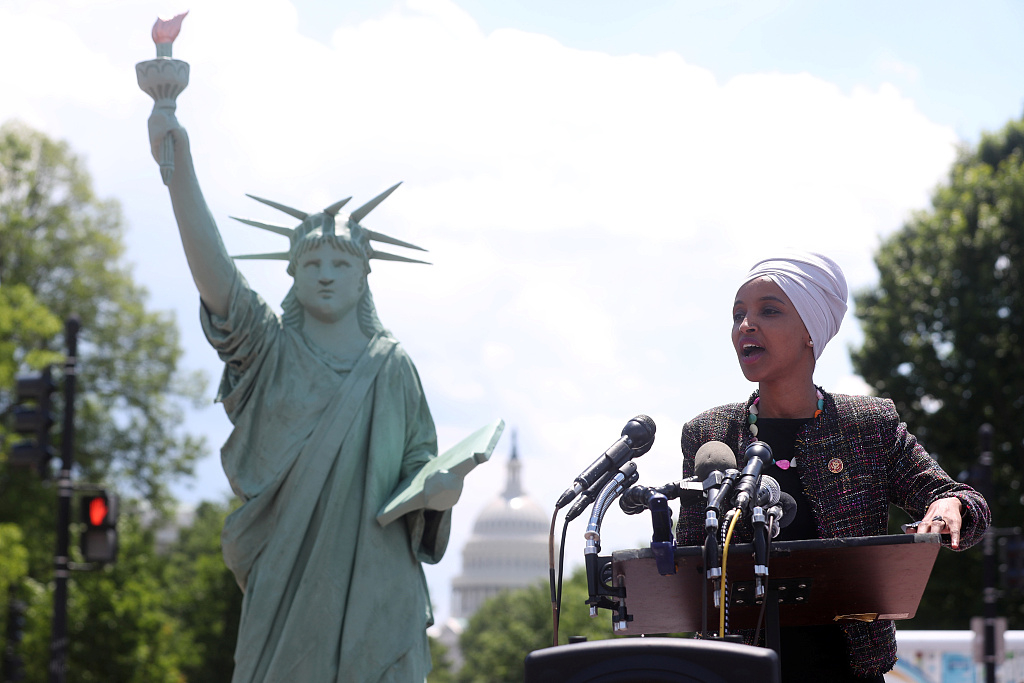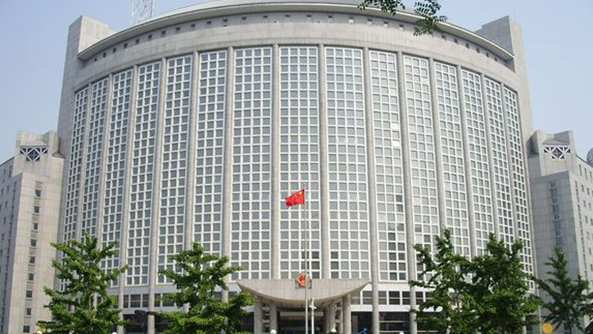Three days after the police killing of an unarmed black man in Minneapolis, Trump tweeted "When the looting starts, the shooting starts." Taking into account the context of the original expression, the platform flagged the post for "glorifying violence."
The phrase was used both by Miami's police chief, Walter Headley, in 1967, and by presidential candidate and segregationist George Wallace the following year.
On Friday afternoon, Trump tried to walk back from the accusation, tweeting, "Looting leads to shooting, and that's why a man was shot and killed in Minneapolis on Wednesday night - or look at what just happened in Louisville with 7 people shot. I don't want this to happen, and that's what the expression put out last night means...."
Despite Trump's attempts to re-frame the narrative of the comments, his rhetoric inevitably remind everyone of his history of inflaming racial tensions, even during his presidency.
01:17

Here is a list of the most controversial remarks from "the least racist person that you've ever encountered" as Trump self-declared.
'Very fine people on both sides'
Six months into Trump's presidency, a far-right rally called "Unite the Right" was held in Charlottesville, opposing the removal of a statue of Robert E. Lee from the Emancipation Park.
Within the rally, some carried racist and anti-Semitic slogans, Nazi flags, Confederate battle flags, anti-Muslim and anti-Semitic banners. Some of the protesters and counter protesters were "swinging sticks, punching and spraying chemicals." A woman was killed and 35 other people were injured during the protest.
The police later was forced to declare the rally an unlawful assembly and disperse the crowds.
In his initial response, Trump referred to the rally as "hatred, bigotry, and violence on many sides" without condemning the white supremacists undertone of the assembly.
In his later statement to defend himself, he went further to claim there are "very fine people on both sides," suggesting a moral equivalence between the white supremacist marchers and those who protested against them.

White nationalist demonstrators walk into Lee park surrounded by counter demonstrators in Charlottesville, Va., August 12, 2017. /AP
White nationalist demonstrators walk into Lee park surrounded by counter demonstrators in Charlottesville, Va., August 12, 2017. /AP
'Shithole' countries
During an Oval Office meeting about immigration reform on January 11, 2018, Trump was reportedly commenting on immigration figures from El Salvador, Haiti, Honduras, and African countries as "people from shithole countries."
One person briefed on the meeting told the press that when the briefing got to Haiti, Trump began to ask why we want people from Haiti and more Africans in the U.S., and suggested that the U.S. should instead increase immigration from "places like Norway" and Asian countries.
The comments received widespread domestic and international condemnation.
'Send her back'
On July 14, 2019, Trump tweeted about four Democratic congresswomen, commenting their disagreement with Speaker of the House Nancy Pelosi a week earlier.
The four women of color were widely inferred as Alexandria Ocasio-Cortez, Ayanna Pressley, Ilhan Omar, and Rashida Tlaib. Trump labeled them as people "who originally came from countries whose governments are a complete and total catastrophe, the worst, most corrupt and inept anywhere in the world," and suggested them "go back and help fix the totally broken and crime infested places from which they came."
Goaded on by the president, a crowd at Trump's 2020 campaign rally in Greenville, North Carolina chanted "Send her back! Send her back!" in reference to Ilhan Omar.

U.S. Representative Ilhan Omar, Democrat of Minnesota, speaks during a press conference to introduce college affordability legislation outside the U.S. Capitol in Washington, DC, June 24, 2019. /VCG
U.S. Representative Ilhan Omar, Democrat of Minnesota, speaks during a press conference to introduce college affordability legislation outside the U.S. Capitol in Washington, DC, June 24, 2019. /VCG
'Rat and rodent infested mess'
Only a few days after attacking the Congresswomen, Trump hit out at a prominent African-American critic, calling him a "brutal bully" who should concentrate on cleaning up his "disgusting, rat and rodent infested" Baltimore district rather than criticizing the work of U.S. immigration officers on the Mexican border.
Trump's target in a series of early morning tweets was U.S. Representative Elijah Cummings, the Democratic chairman of the House of Representatives Oversight Committee, who has called Trump a racist and sharply criticized his immigration policies.
The attacks came after the committee voted to allow Cummings to issue subpoenas to White House officials, including Trump's daughter Ivanka Trump and son-in-law Jared Kushner, deepening a probe into potential violations of government record-keeping laws.
'Chinese virus'
This year in March, when the world was united in the fight against the coronavirus pandemic, President Trump suddenly flipped from his original praising attitude towards China in handling the coronavirus outbreak, and began to brand the outbreak as the result of a "Chinese virus," as he ramped up accusations that Beijing failed to warn the United States about the virus early on.
At a press conference later, Trump was unapologetic about his choice to refer to COVID-19 as the "Chinese virus," saying that he continues to refer to the virus that way because "it comes from China."
Dr. Anthony Fauci, the director of the National Institute of Allergy and Infectious Diseases (NIAID), commented on Trump's word of choice by saying "I can't jump in front of the microphone and push him down," added that he has never used the term himself and never will.
00:41

Friday night, Trump defended his Twitter response to the death of George Floyd claiming that he didn't know the racially charged history behind the phrase, and tried to clarifying his initial intention of condemning the violence.
But ignorance is not good enough a free-from-jail card in this context. Public opinion is notably influenced and incited by the president's bigotry and racist rhetoric, leading not only to racist rally chanting but also a more divided nation with rising tension between races and growing number of hate crimes.